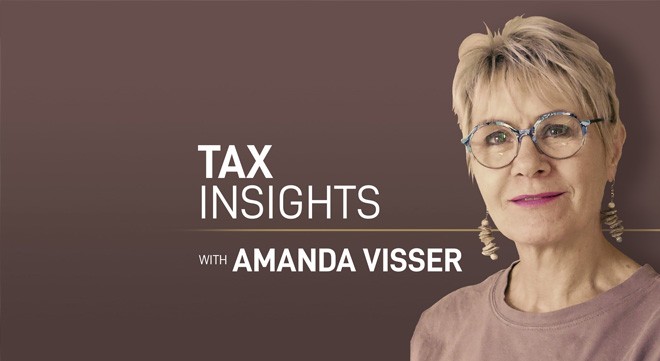The judgment in the South African Revenue Service’s appeal against a decision in favour of Woolworths Holdings confirms important value-added tax considerations for holding companies.
The Supreme Court of Appeal’s decision also reaffirms that taxpayers may rely on expert tax opinions when they are independent, timely, and based on the correct facts.
The matter dealt with the VAT treatment of Woolworths’ acquisition of the Australian department store, David Jones, for more than R21 billion in 2014. The acquisition was funded by existing cash, new debt facilities, and equity funding raised through a R10bn fully underwritten renounceable rights offer.
Woolworths incurred VAT of close to R19 million in underwriting fees. It deducted R8.5m for input tax, which was a portion of the VAT incurred on services paid in respect of the rights offer accepted by South African shareholders.
It also declared R15.5m in respect of the portion of the VAT incurred for the services supplied by non-resident service providers as “imported services” and claimed a reduction of a portion (R12.9m) of the costs.
Woolworths acted on a tax opinion from Finvision VAT Specialists. It was based on the supply of the shares to residents being an exempt supply and the supply to non-residents being a zero-rated taxable supply.
“In essence, Woolworths Holdings deducted input tax only in respect of the costs incurred in respect of local suppliers and paid output tax in respect of the costs incurred in respect of foreign suppliers of services,” the SCA noted.
SARS disallowed the deduction of the R8.5m VAT input and levied a further VAT output tax of R28 373 on what it considered the correct amount for the imported services. It also imposed a 10% understatement penalty of more than R2m for the amounts it considered to have been understated.
Investment company
Woolworths approached the Western Cape Tax Court when SARS upheld only a portion of its objection against the disallowance of its VAT claims and the imposition of a 10% understatement penalty.
The Tax Court found in favour of Woolworths. It found that the VAT charged on the underwriting services supplied by resident service providers was deductible input tax. It found that Woolworths Holdings conducted an enterprise as an investment company.
The Tax Court also found that the services supplied in relation to the issuing of shares under the rights offer to non-resident shareholders were not imported services and that Woolworths Holdings was not liable for understatement penalties.
SARS appealed the decision before the SCA, which found that instead of examining the enterprise holistically, SARS impermissibly isolated the share offer, ignoring the true extent and nature of the enterprise, and then reasoned that, to qualify as a taxable supply, or as an activity within an enterprise, the share offer (and related expenses) should be a continuous or regular activity on its own.
It concluded that because the share offer did not recur, it was not Woolworths Holdings’ enterprise. SARS ignored the impact of raising the capital and the acquisition on Woolworths Holdings’ business.
The penalty
SARS levied the understatement penalty on the basis that Woolworths only received the tax opinion from Finvision after the due date of the VAT return. However, the opinion was dated before the due date, and Woolworths offered evidence that it forwarded the opinion to SARS on the same day that it received it.
SARS contended that Christoffel Eagar from Finvision was not an “independent” practitioner because he “peddled a model to Woolworths to move it away from the applicable legal position”. He did this because, according to SARS, he had a direct and improper interest in the fee that he would earn for giving the opinion.
The SCA found this argument impermissible because it was raised for the first time in SARS’s heads of argument. SARS was limited to the grounds raised in its pleadings.
“In addition, there is no evidence to support the argument that Mr Eagar’s opinion was self-serving, contrived and designed to improperly persuade Woolworths to claim input tax,” the SCA found.
It held that his opinion was correct, in fact and in law. There was no evidence to support that the opinion was obtained only after the due date of the VAT return – therefore there was no basis was for the imposition of the understatement penalty.
Joon Chong, partner at Webber Wentzel, found SARS’s argument that Eager “peddled” a model to Woolworths because he had an improper interest in the fee he would earn “interesting”.
“Just as Woolworths profits as an active investment holding company, a tax practitioner’s business involves giving tax advice for a fee. These fees in turn result in taxable income and revenue for the fiscus,” she remarked.
ENSafrica tax executive Charles de Wet said the SCA’s decision confirms the status of a tax opinion issued by a tax practitioner as being valid when it is objective and includes all details of the transaction “irrespective of whether the practitioner was the architect of the specific interpretation of the Act”.
Amanda Visser is a freelance journalist who specialises in tax and has written about trade law, competition law, and regulatory issues.
Disclaimer: The views expressed in this article are those of the writer and are not necessarily shared by Moonstone Information Refinery or its sister companies. The information in this article is a general guide and should not be used as a substitute for professional tax advice.





It’s very interesting to study something in tax law and am interested, I don’t know where should I register and study to be able to write exams